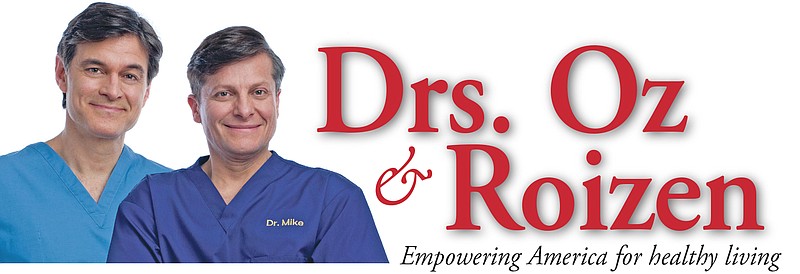Low-back pain is a high-pain problem, sending folks of all ages to the doctor. In fact, it is the No. 2 reason for doctor's office visits in the U.S. - and numero uno for orthopedic visits. Some studies show it affects around 13% of U.S. adults ages 20 to 69 at any given time.
Ninety percent of the time, low-back pain is acute - meaning it lasts for a few days or weeks. But it recurs over and over. According to the Institute for Neurological Disorders and Strokes: "Chronic back pain is defined as pain that continues for 12 weeks or longer, even after an initial injury or underlying cause of acute low back pain has been treated. About 20% of people affected by acute low back pain develop chronic low-back pain with persistent symptoms at one year. Even if pain persists, it does not always mean there is a medically serious underlying cause or one that can be easily identified and treated. In some cases, treatment successfully relieves chronic low-back pain, but in other cases pain continues despite medical and surgical treatment."
There are all kinds of environmental reasons for low-back pain, including stress, depression and actual injury to muscles or bones (that is a far less common reason). But all of those triggers may be able to cause serious distress because you have an underlying health challenge, chronic inflammation fueled by lousy nutrition. You are what you eat, and you hurt because of what you eat.
A new study presented at a recent Association of Academic Physiatrists annual meeting shows that eating inflammatory foods increases the risk of lower-back pain. The researchers from the University of Pittsburgh used the Dietary Inflammation Index to evaluate the food intake of folks reporting low-back pain. That index is based on complex data analysis that pinpoints foods that stimulate six inflammatory factors in your body - CRP (C-reactive protein), TNF (tumor necrosis factor) and forms of interleukin (inflammation-promoting cytokines that impact the immune system). The DII says the main food felons associated with low-back pain are saturated and trans fats, dairy, cholesterol-containing foods (red and processed meats, eggs, poultry skin) and processed carbs.
The DII also identifies ingredients that are most anti-inflammatory: They include turmeric, garlic, ginger, green and black teas, and food loaded with flavanols, such as onions, kale, grapes, red wine, peaches, berries, tomatoes and broccoli, as well as omega-3 fatty acids (that's DHA, ALA, etc.) and fiber.
Wouldn't it be wonderful to eat your way out of pain by enjoying great-tasting foods? We suspect that it's not just low-back pain that responds positively to an anti-inflammatory diet. You may see an easing of arthritis or joint discomfort, fewer headaches and less neck or jaw pain. Studies also show that ditching an inflammatory diet has long-term benefits, reducing the risk for diabetes complications, some cancers and heart disease. And you'll live longer! According to data seen in 10 studies, a high-inflammatory diet is linked to a 23% increased risk of premature death.
So starting today, reduce your intake of inflammatory foods. Substitute salmon and skinless poultry for all red and processed meats. Cook with anti-inflammatory spices such as garlic, turmeric and ginger. And make sure to drink two to four cups of green or black tea.
Stick with that for two to four weeks; then eliminate fried foods and dairy. Stick with that total plan for a month.
Once you have adjusted to that, dish up one extra fruit or vegetable in each meal: berries at breakfast, tomatoes at lunch, broccoli with dinner. Your goal is seven to nine servings of fruits and veggies a day.
After sticking with this diet for three months, ask your doc for a blood test to check your CRP inflammation level. But we suspect you will already know you're healthier - much fewer aches and pain!
Mehmet Oz, M.D. is host of "The Dr. Oz Show," and Mike Roizen, M.D. is Chief Wellness Officer and Chair of Wellness Institute at Cleveland Clinic. To live your healthiest, tune into "The Dr. Oz Show" or visit sharecare.com.
(c)2021 Michael Roizen, M.D.
and Mehmet Oz, M.D.
King Features Syndicate

